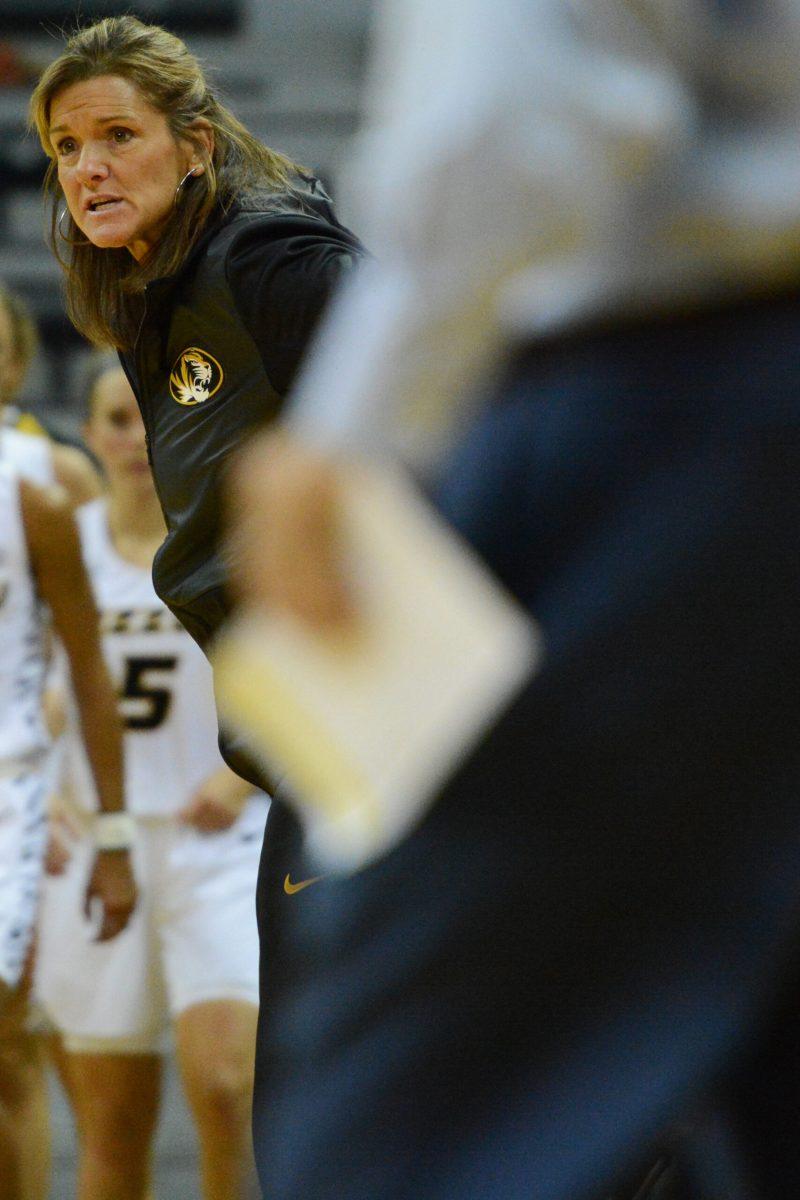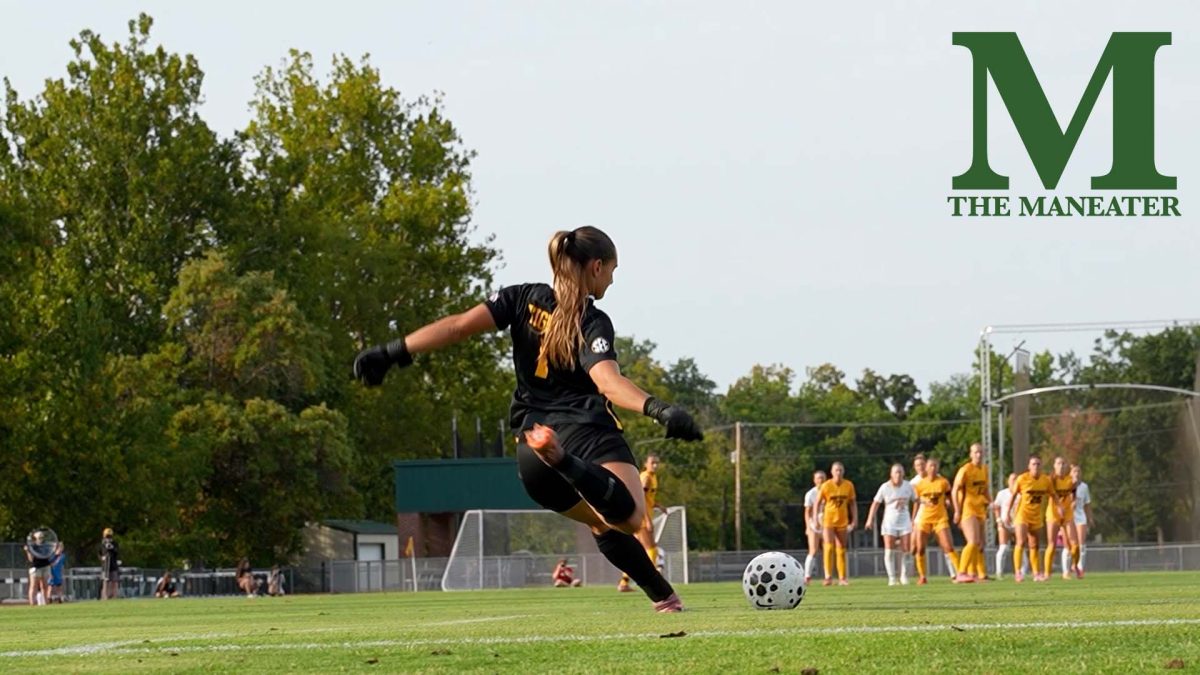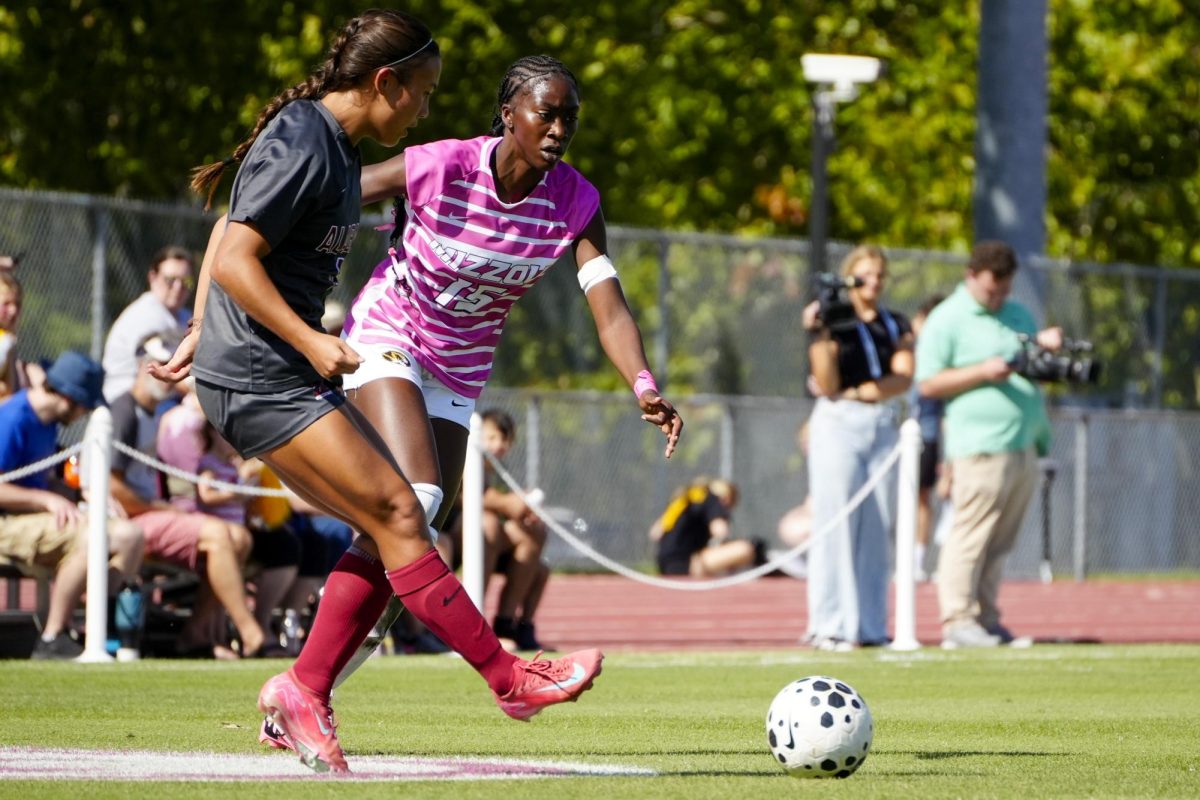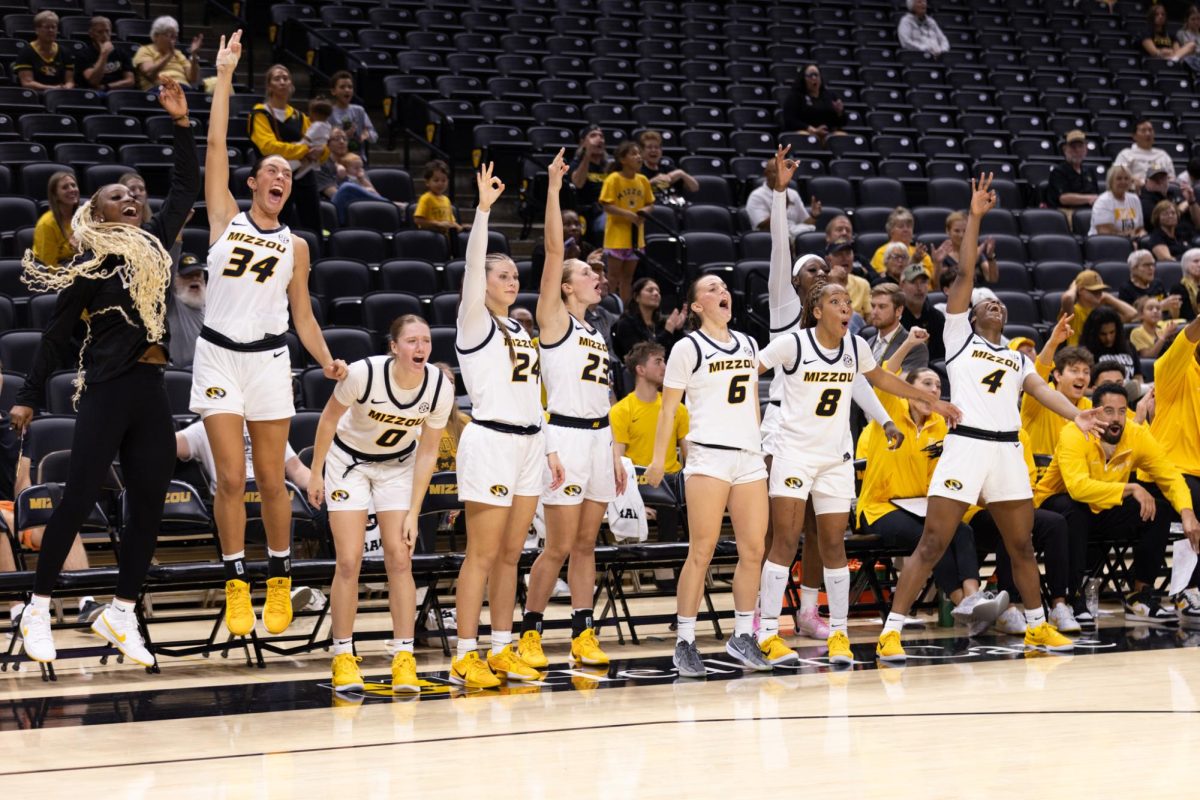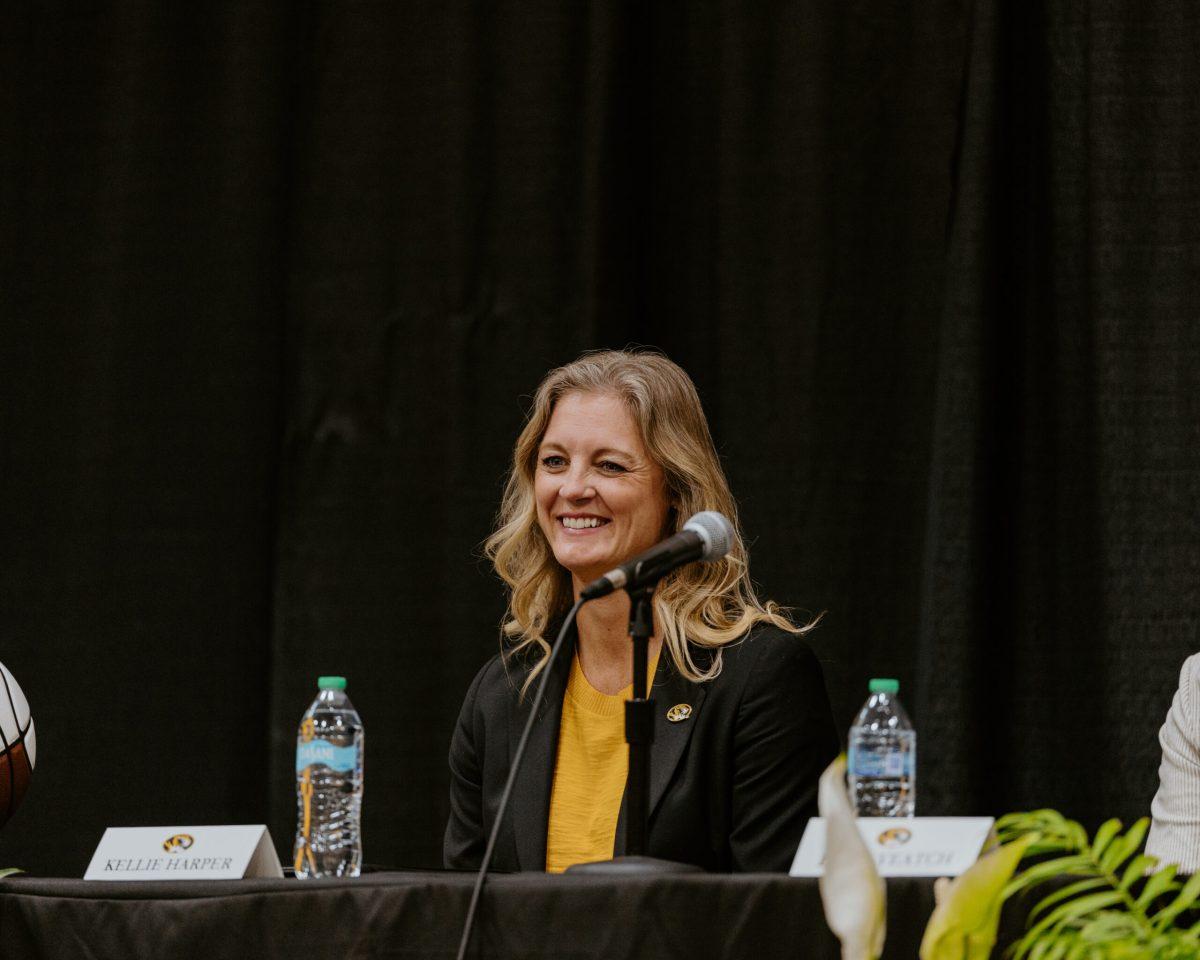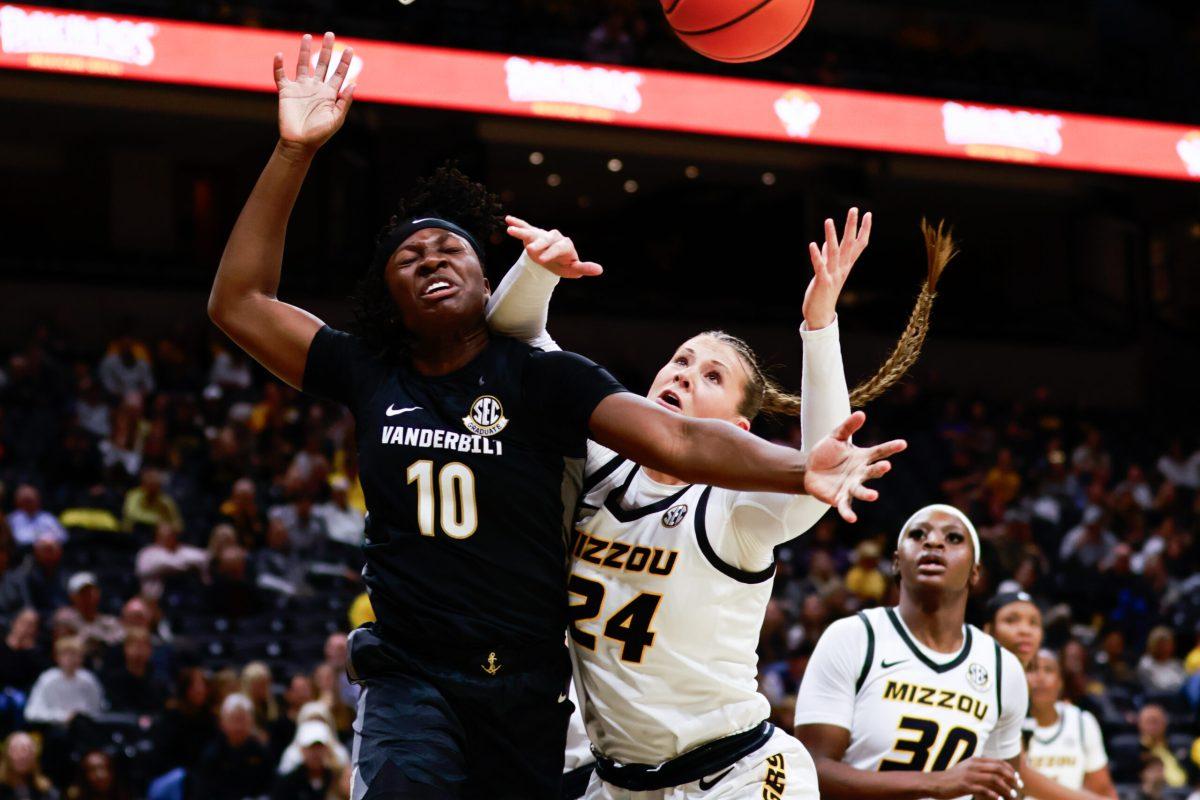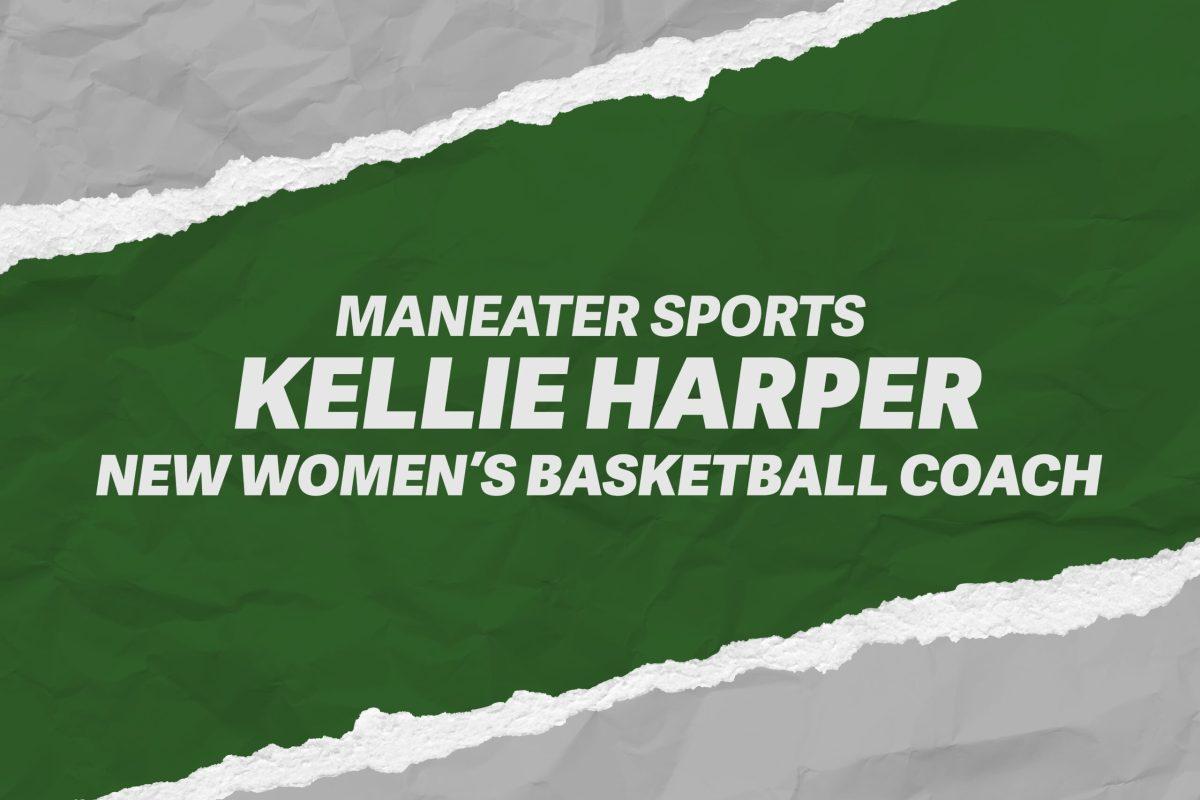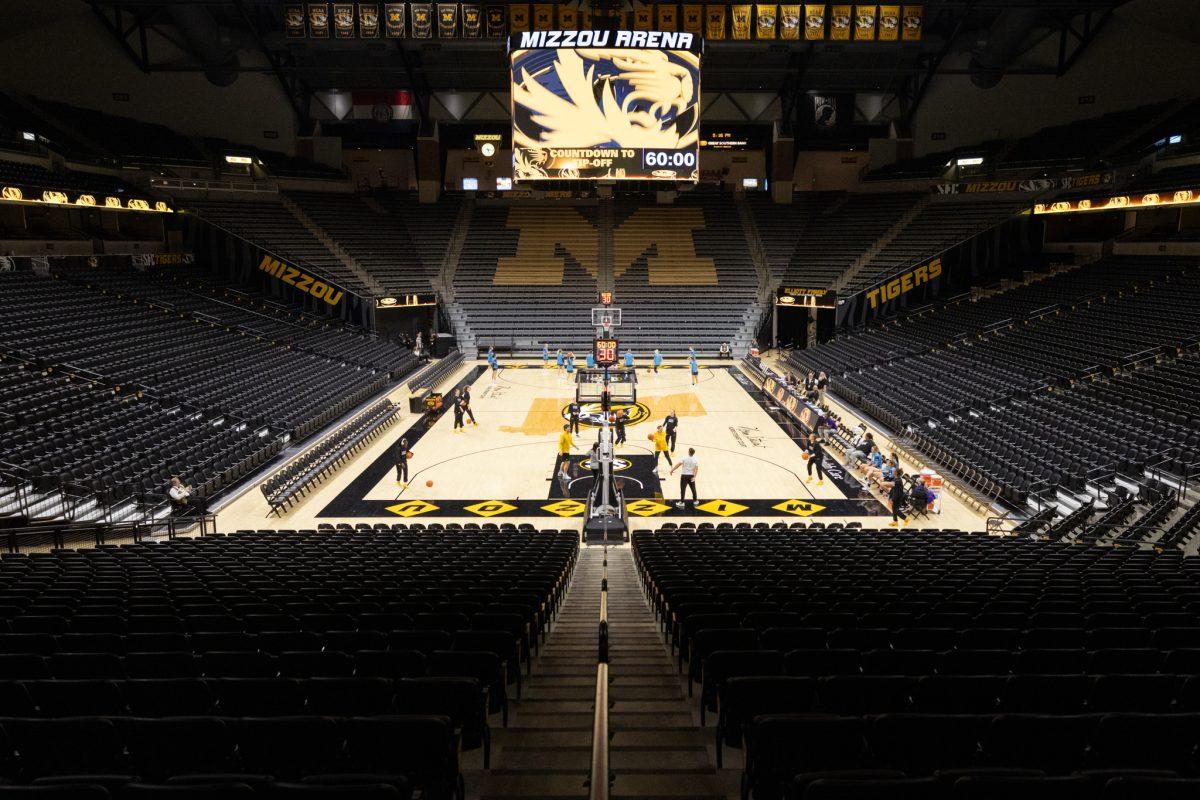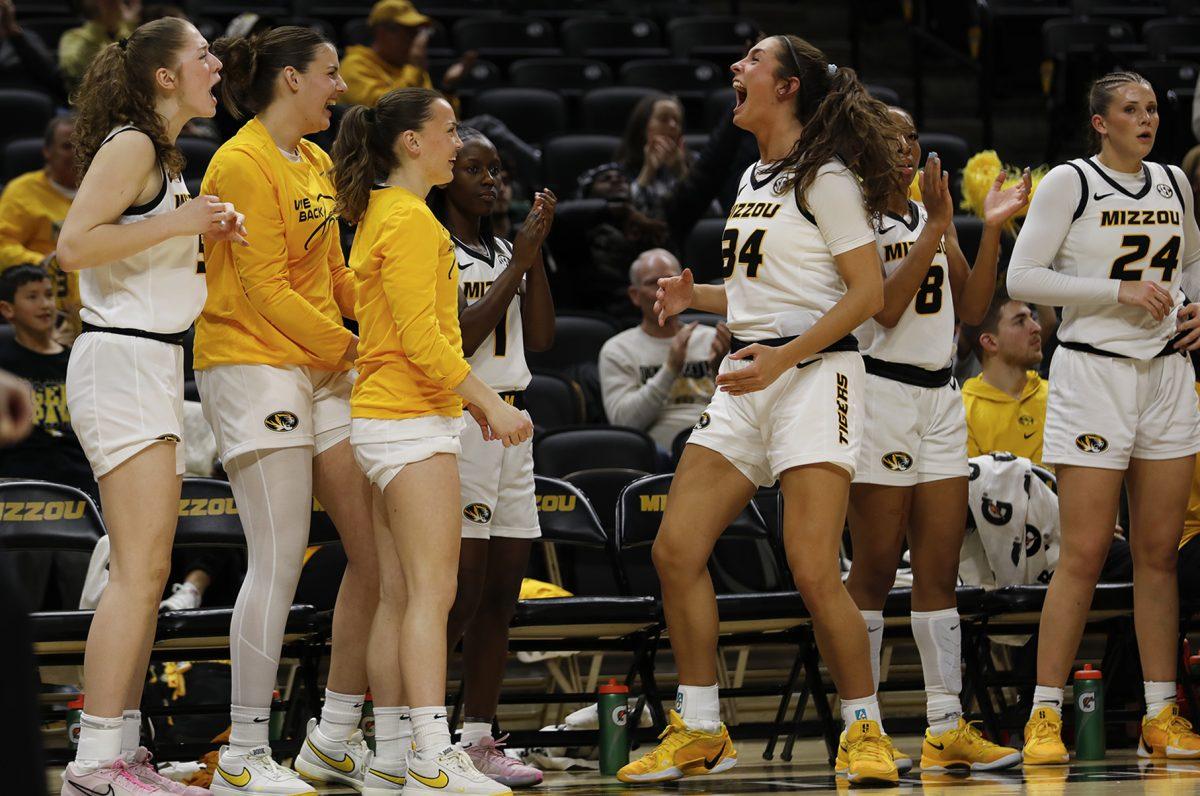Missouri coach Robin Pingeton took to the podium for media day looking cool, calm and collected. Entering her ninth season at the helm, she is “ready for regular season games to begin and to see what this group of kids can do.”
She’s built a successful program at Missouri, but she didn’t inherit that program. She didn’t inherit much at Illinois State either. Or St. Ambrose. But she built each program into a powerhouse.
Every program has its ups and downs. When a program dips into losing ways, it looks for a head coach to take the reins and bring back the program. Robin Pingeton is one of those coaches that brings struggling programs into national ranks.
Pingeton was the head coach at St. Ambrose – her alma mater – and Illinois State prior to taking the helm at Missouri. In eight seasons at St. Ambrose, she won 192 games, never winning fewer than 19 in a season. Then, a promotion. Another rung up on the ladder, this time at Illinois State, an NCAA program in shambles at the time. Leanna Bordner, deputy athletics director at Illinois State, was looking for a “rising star” to turn the program around.
“It was an important hire for us,” said Bordner. “We needed to hire a coach to get us back on track in winning ways.”
The program had won eight or less games each season in the five years before the hire, and just 11 the year before that. Given her track record at St. Ambrose, Pingeton was on the short list for that pivotal hire, and she took the job. She brought along with her Randy Norton, now the head coach at the University of Alabama-Birmingham.
“Robin and I really talked the X’s and O’s of basketball a lot,” Norton said. “We collaborated well, and we both really liked the motion offense.”
This motion offense turned the Illinois State program around, earning Pingeton Missouri Valley Coach of the Year honors following the 2003-04 campaign, her first year at the helm. She nearly doubled the win total from the previous season, winning 13 games compared to seven the year before. In the next six seasons, the Redbirds turned into a national powerhouse, qualifying for the NCAA Tournament in 2005 and 2008.
It all started in building a “championship culture,” Norton said. “We both came from championship backgrounds so that was the culture we wanted to build.”
Pingeton and her staff did this by building relationships with the players they recruited, looking at skills both on and off the court. Norton remembers looking for players with “high character, toughness and an ability to pursue excellence in the classroom.”
“With the classroom excellence came the high basketball IQ of our players,” Norton said.
According to Randy Kindred, a sports reporter at The Pantagraph, a newspaper based in Normal, Illinois, that’s something ISU misses the most about Pingeton.
“She brought high level talent,” Kindred said. “Robin brought winning and stability to ISU that they really needed. ISU was in really bad shape when she arrived. Five years of really bad records, and just couldn’t get the attendance. They needed someone to energize the program.”
After amassing 144 wins – which is second most of all time at ISU – Pingeton came to MU.
“We made sure to leave ISU in the right spot before moving on,” Norton said. “We both had made great relationships that made it hard to leave. It was a heck of a lot of fun!”
Since Pingeton’s departure to Mizzou, Illinois State has continued to struggle.
“No one could really bring in the talent she did,” Kindred said. “It’s been sad to see the program without Robin, both before and after. She just had a perception of the program that was different and won a lot of games.”
Bordner echoed those sentiments, saying it was tough to see her go.
“Robin left a legacy of ‘it can be done, it will be done,’” Bordner said. “That meant a lot to her, she left the program in better shape than it was when she found it, and that’s a huge success. I am forever thankful to have her has a friend.”
While Missouri wasn’t in quite as bad of shape as Illinois State was, the Tigers weren’t anywhere near an elite level.
Aside from a 23-win season in 2005-2006, the Tigers didn’t have another 20-win season in the nine years before Pingeton’s arrival. However, the number that needed changing at the time was Missouri’s record in conference. The Tigers won less than six conference games a year in the four years before her hire.
In eight seasons at Mizzou, Pingeton has already amassed 147 wins and led the Tigers to three consecutive NCAA Tournament berths. She was brought to Mizzou to turn the program around, and she has done just that by doing what she’s done at her last two jobs – implementing a championship culture on and off the court and building relationships that last a lifetime. Bordner sees that as a large part of Pingeton’s legacy.
“She always had her door open,” Bordner said. “She relates to a wide range of people, and the biggest thing she does is trusts people.”
Pingeton’s ability to develop these relationships and bring in the best on-court athletes with off-court talents has allowed her to always be a winner.
She and her staff preach having players out in the community helping others, which causes people to care more about coming to the games. This is in large part why attendance jumps with each of her programs. Missouri’s attendance rose into the top half of the SEC last year, including a matchup with Tennessee where the crowd reached 7,989 fans. It was the most-attended game for Missouri women’s basketball ever, according to the Columbia Daily Tribune.
Pingeton would have players “out in hospitals, bringing cookies to police, helping at nursing homes, retirement homes, anywhere they could help,” Norton said.
“Sure we wanted to win championships,” Norton said, “but we also wanted to give back to our communities.”
Kindred expanded on that, saying “they helped a lot” with other local organizations and foundations like the Special Olympics and area elementary schools, which encouraged parents to bring their families to the games.
“Robin, her staff and her players went above and beyond off court success,” Kindred said. “She’s a great people person with a great personality.”
Even some current Mizzou players commented on how Pingeton went above and beyond for them more than other coaches in the recruiting and coaching process.
“Coach [Pingeton] wanted me and the team to follow the core values from the beginning,” junior Amber Smith said.
Freshman Grace Berg, fresh off of the recruiting process, also remembered how Pingeton built trust with her.
“She showed me how much of a family program it is here,” Berg said. “She’s a mother figure that cares about us all, I love it here so much.”
Pingeton’s ability to acquire talent on and off the court has lead to success in every stage of her career. She’s even made lasting impacts on her staff, as Norton continues to implement the championship formula they put in place at ISU in his current position at UAB.
“We both love to teach kids how to play ball and to win games and win at life,” he said. “It’s about building good relationships based in trust.”
Trust is a key part of life and, for Pingeton, it’s a key part of coaching. Bordner sums it up, saying, “Robin worked hard for everything she’s gotten. It’s her trust in others and her ability to lead that allows her to be so successful.”
While Bordner was giving praise to Pingeton for her ability to build relationships in trust, Pingeton herself tweeted “Truth is at the heart of every great relationship.”
_Edited by Adam Cole | [email protected]_


